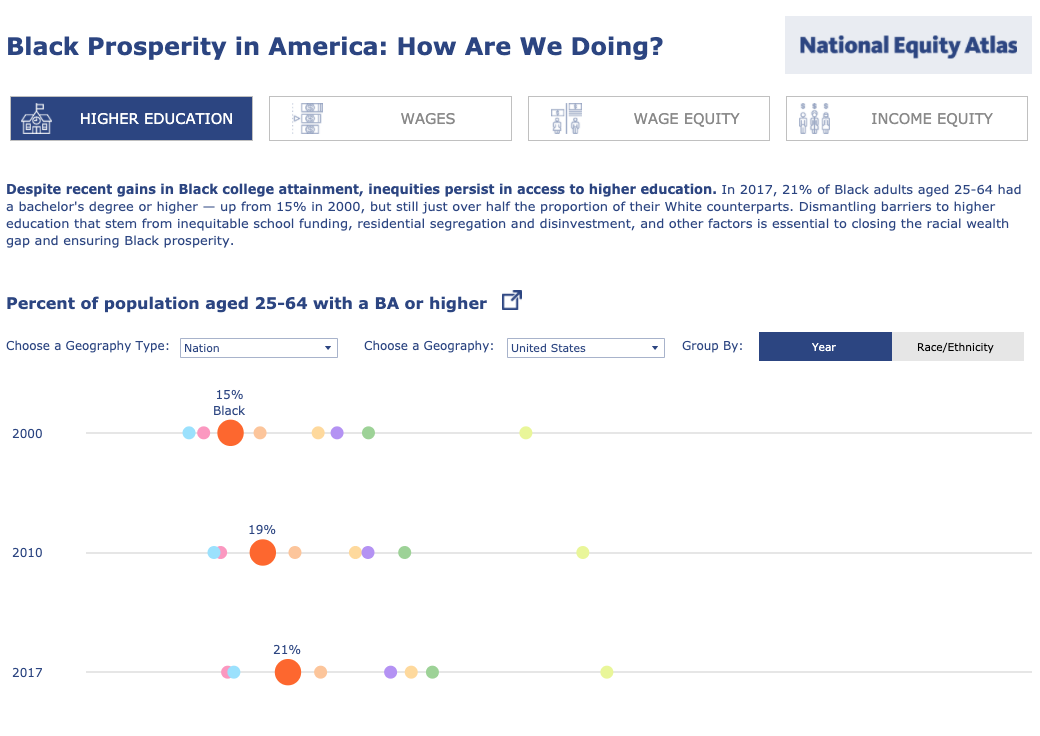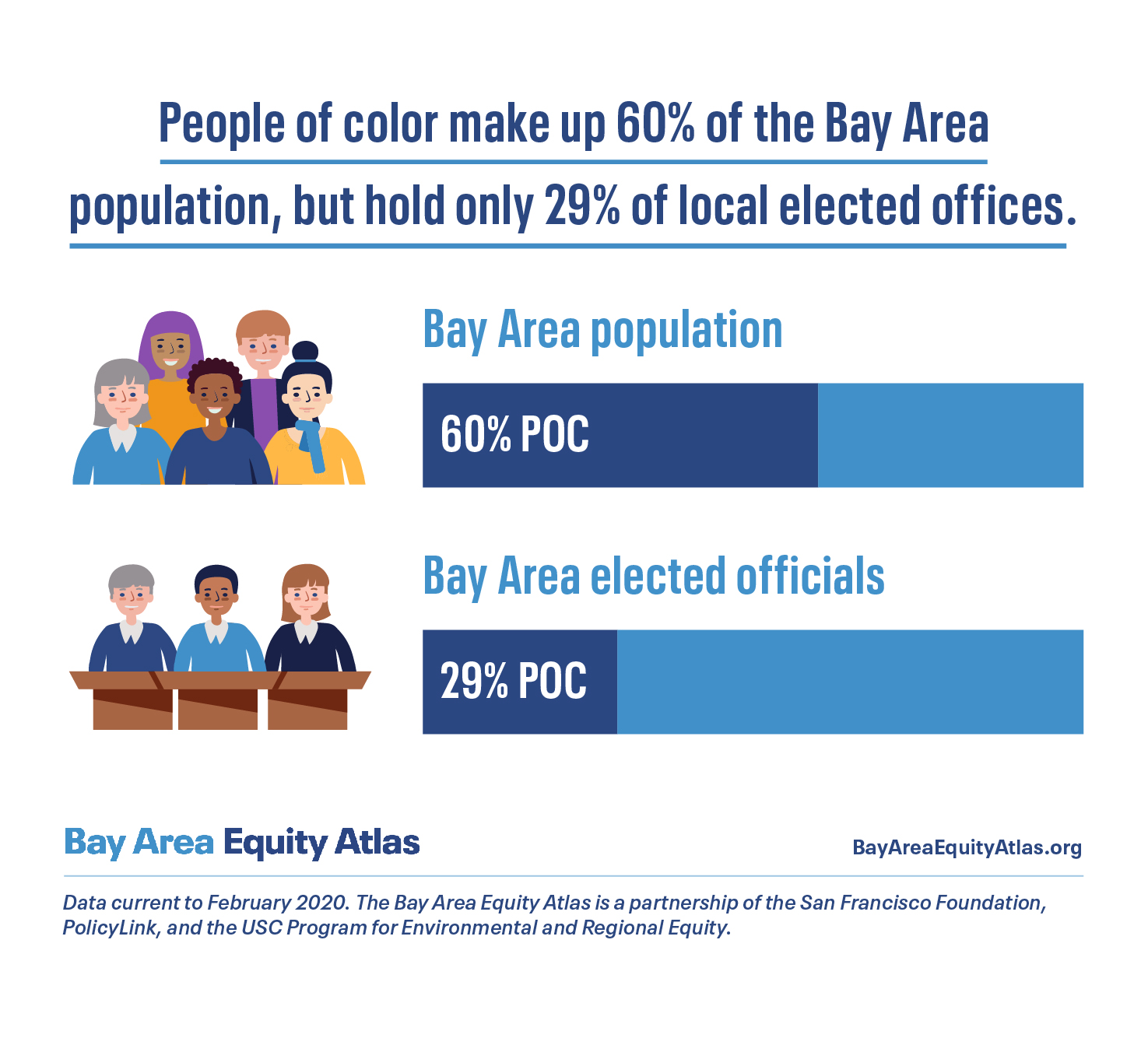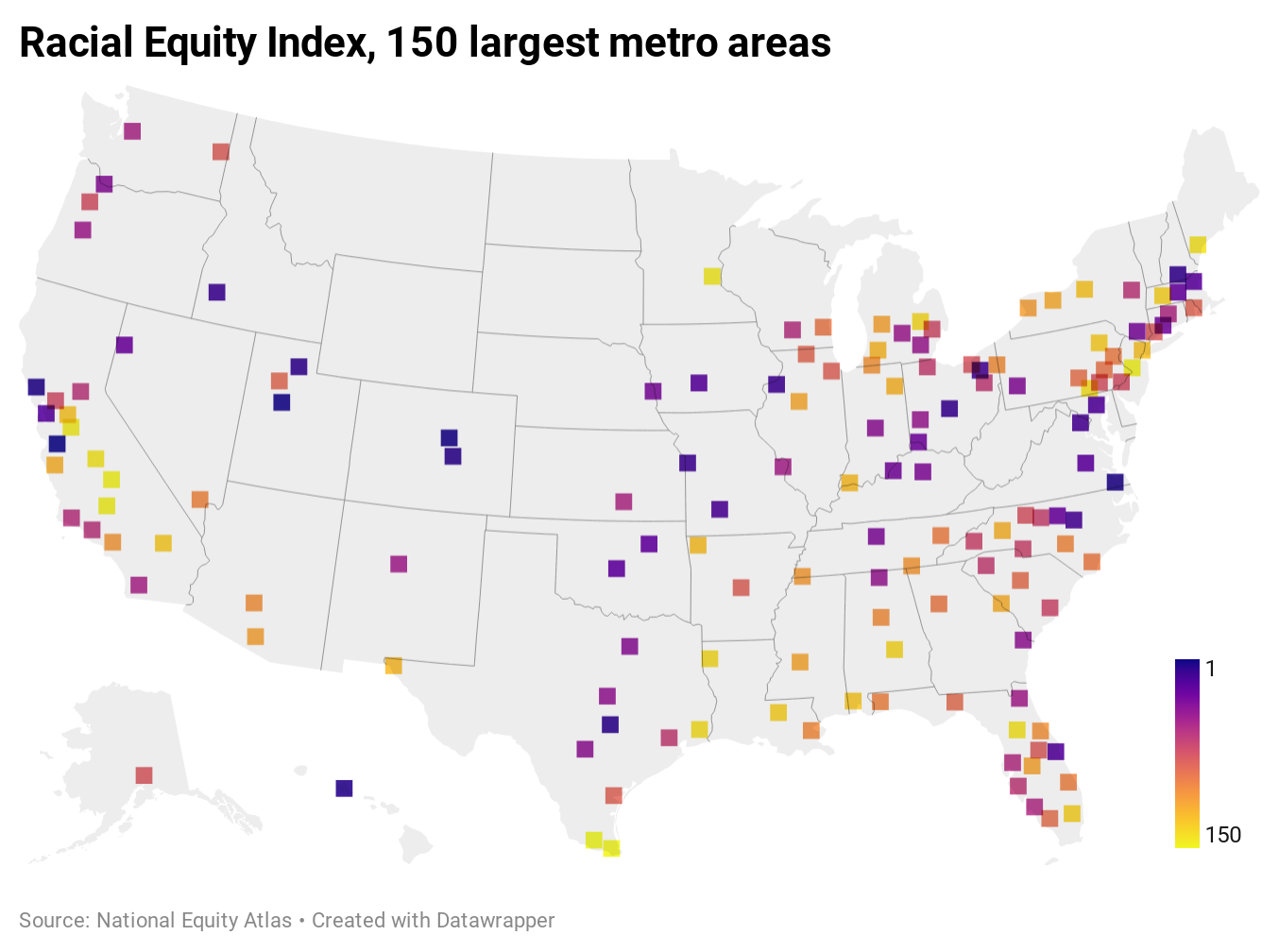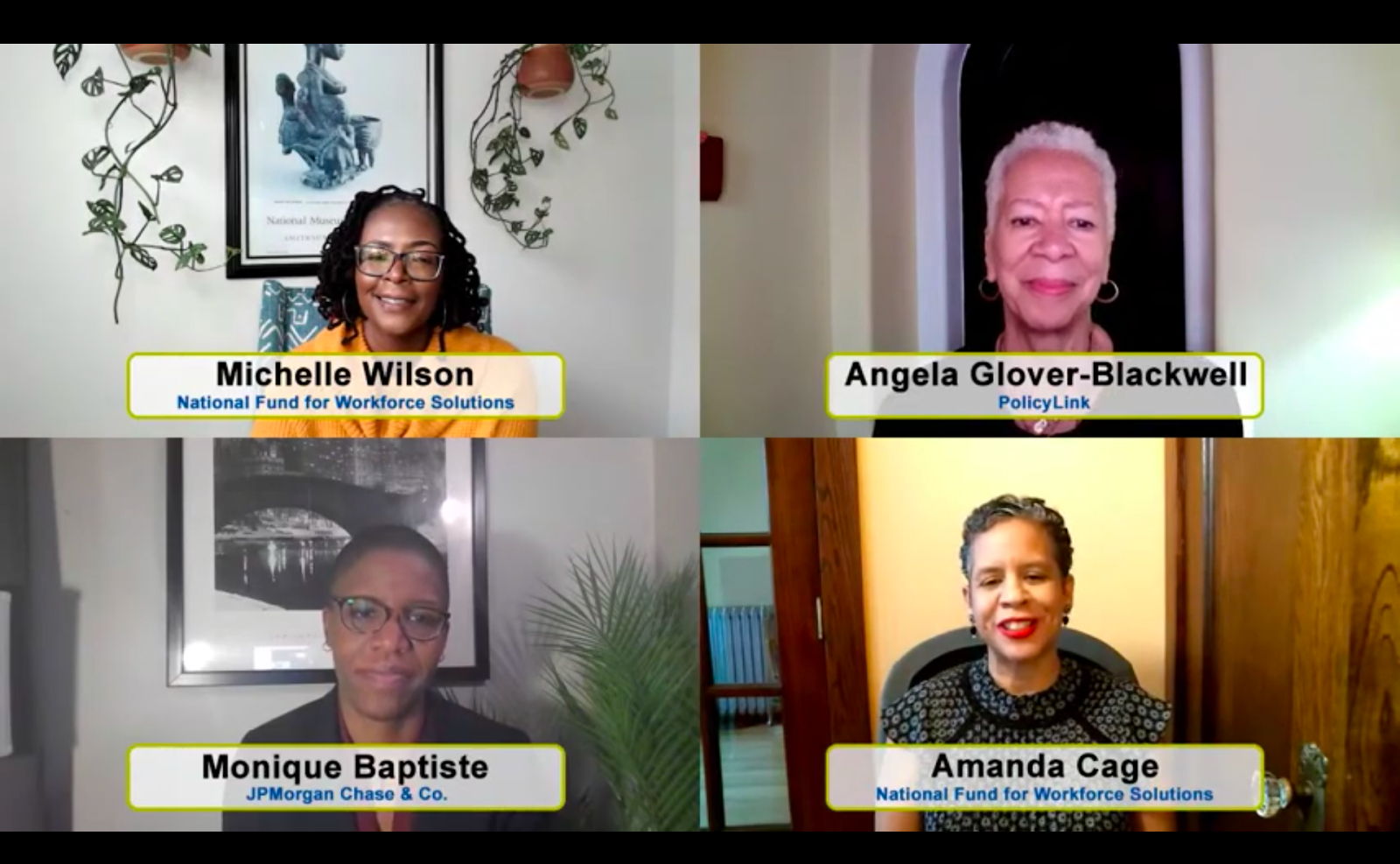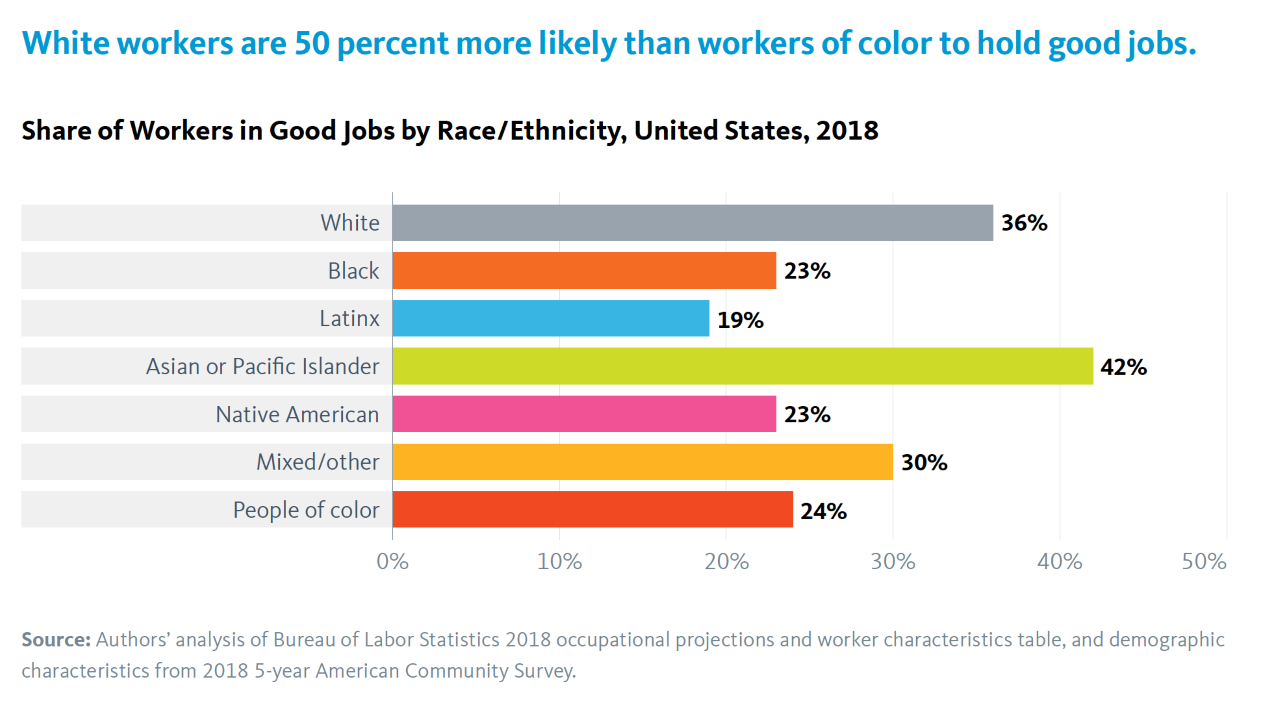Major US Metros Are Becoming More Unaffordable to Low-Income Renters
Dear Atlas users,
The crisis of housing affordability remains an urgent challenge for communities across the country, and it’s being driven by both national and local forces. As our research has shown, ensuring all households have access to safe and affordable housing is key to an equitable recovery and a strong economy built on shared prosperity. The National Equity Atlas and our partners continue to provide guidance and support to those working to build a more just housing future for us all. Here are more updates:
The Shrinking Geography of Opportunity in Metro America
The first report in our series exploring the changing geography of opportunity in American metropolitan regions illustrates the growing gap in access to affordable housing and opportunity-rich neighborhoods for working-class, Black, and Latinx renters. Eighty-one of the 100 most populous regions in the United States saw a decline in affordability between 2013 and 2019, with Black households, in particular, facing an extremely limited and diminishing number of neighborhood choices. Our analysis shows that this trend is reinforcing long-standing patterns of racial segregation and creating new ones. Explore more findings and our policy recommendations — and stay tuned for the forthcoming reports from this series.
Thousands of Households in California Are Still Waiting for Rent Relief
More than 461,000 renter households applied to California’s Emergency Rental Assistance Program (ERAP), staking their families’ futures on its promise to cover 100 percent of Covid-related rent debt. Our latest ERAP analysis shows that more than 45,000 households are still waiting for their applications to be reviewed and 133,707 households have been denied assistance as of July 13. And newly obtained data on the basis for denials shows that the vast majority of applications (83 percent) were denied for one or both of two reasons — “non-responsiveness” and “inconsistent/unverifiable information” — which tenant advocates have cited as being problematic. See our dashboard for data down to the zip code level, and find all of our analyses at the California ERAP hub.
Advancing Workforce Equity in Columbus, Ohio
Columbus, Ohio, has one of the fastest-growing economies in the nation, but our report on the region’s workforce shows that the prosperity generated by its tremendous growth has not been shared equitably. In fact, workers of color tend to be overrepresented in lower-paying occupational groups, while white workers are overrepresented in higher-paying professions. Our research indicates that eliminating racial inequities in employment and wages could boost the Columbus regional economy by about $10 billion a year. Download the full report and explore the other regional analyses in our Advancing Workforce Equity project.
Join Our Team!
Our team is actively recruiting for a Senior Associate to lead Atlas research engagements with community partners, including the development of reports, analyses, and local equity data tools; contribute research and data support to the Bay Area Equity Atlas, and support the further development of the Atlas tool. The ideal candidate is passionate about producing data and research that is relevant and actionable for those working on the front lines to advance racial economic equity. Please help us spread the word!
Atlas Fellows
In case you missed it, we launched the National Equity Atlas Fellowship with 12 visionary leaders. This new program provides intensive, hands-on data training and support to grassroots leaders of color working to advance racial and economic equity. Click here to learn more about the fellows and their work.
Atlas in Action
Over the past few months, our data and analyses have informed dozens of news articles, the development of new tools, and advocacy efforts: Our ERAP analyses and key findings have been covered in both national and California media outlets, including CalMatters, Los Angeles Times, San Francisco Chronicle, San Francisco Public Press, and Politico. Our September 2021 report on the share of federal contracts going to small businesses and insights from Atlas team Eliza McCullough anchored a CNBC piece exploring trends in federal contracting. In addition, Atlas data has been used in the Partnership for the Bay's Future’s Housing Readiness Report — a new tool that helps Bay Area residents track, monitor, and get involved in their city’s housing plans and policies. We also have shared our work with a diverse set of audiences through dozens of presentations, including the 2022 Pennsylvania State of the Union on Latino Health, the CFLeads Community Foundation Equity Network Meeting, the 2022 Community Indicator Consortium Symposium, and the National Association of County & City Health Officials Virtual Symposium.
- The National Equity Atlas Team at PolicyLink and the USC Equity Research Institute (ERI)
